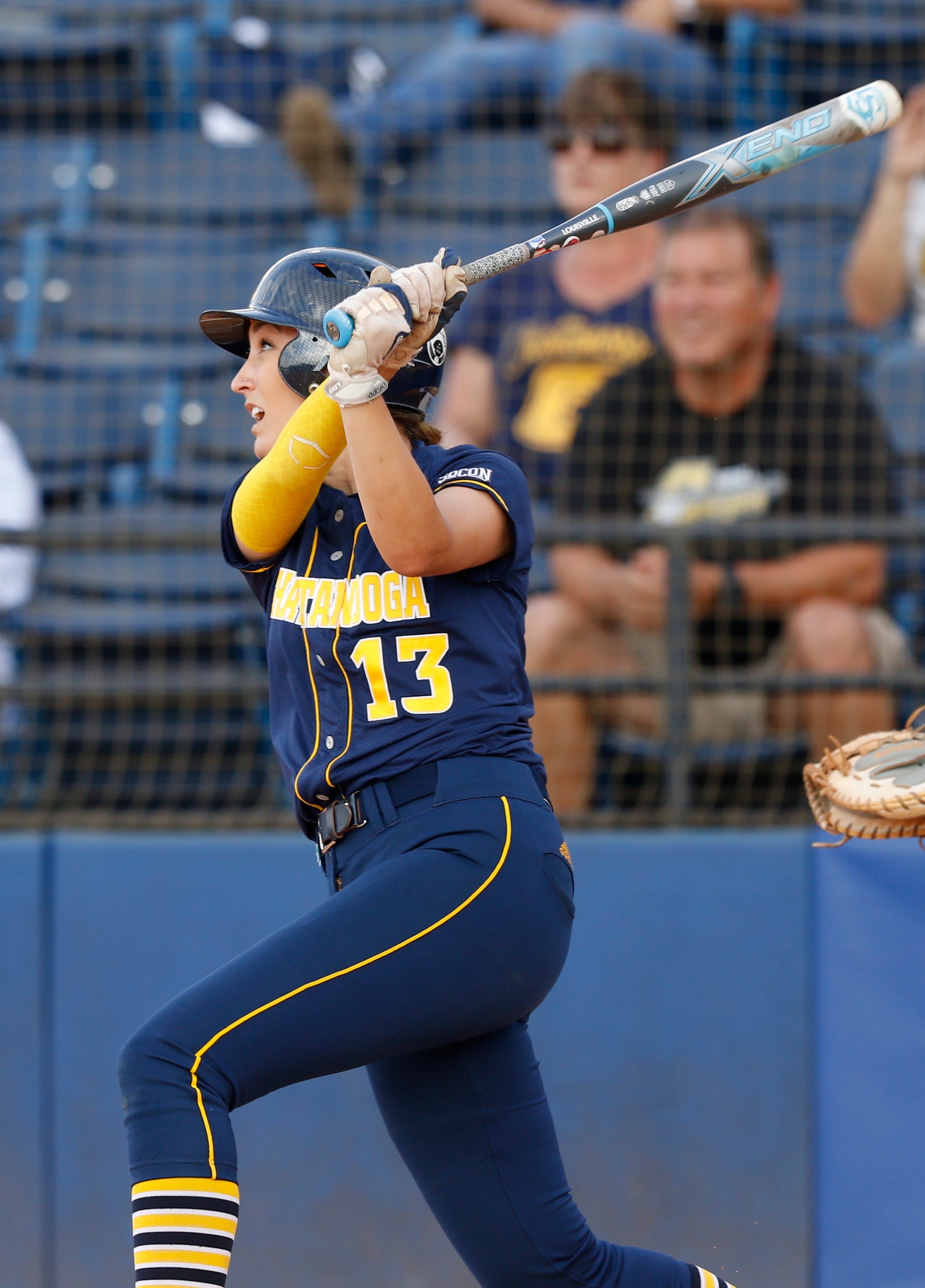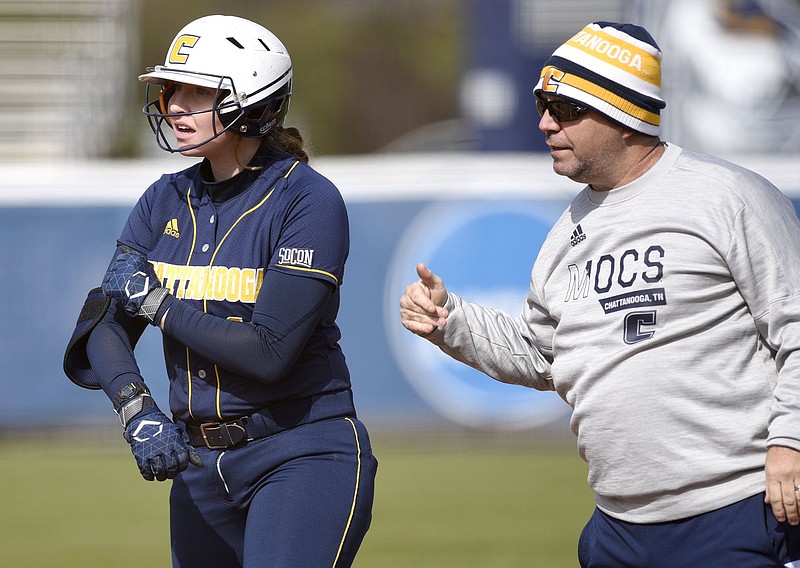On the surface, allowing NCAA Division I spring sports participants another year of eligibility seems like a win-win situation for college programs and the student-athletes whose seasons - and careers in some cases - ended prematurely due to the coronavirus pandemic.
However, as University of Tennessee at Chattanooga softball coach Frank Reed pointed out a day after the NCAA Division I Council's ruling to extend eligibility, there is another side. While all spring sports athletes can choose to take advantage of the ruling, seniors might have to do so with a cut in financial aid - or no financial aid at all.
"Leave it to the NCAA to throw it back on the schools instead of stepping up and making a hard-fast decision and say this is what we're going to do," Reed said Tuesday. "Now we have to make the decision.
"Some kids are going to be really happy about it, and some are going to be really bummed."
Schools cannot cut financial aid for undergraduate student-athletes, but seniors who elect to extend their athletic careers will have no such protection. The NCAA, in its release Monday, said schools would be allowed to use money from the Student Assistance Fund to help fund scholarships for returning seniors.
 Staff photo / UTC's Emma Sturdivant bats during the 2019 SoCon softball tournament championship round against UNC Greensboro last May 11 at Frost Stadium. UTC won the title, and with a senior class of seven, the Mocs had hoped to repeat as league champions this year before the season was called off due to the COVID-19 pandemic.
Staff photo / UTC's Emma Sturdivant bats during the 2019 SoCon softball tournament championship round against UNC Greensboro last May 11 at Frost Stadium. UTC won the title, and with a senior class of seven, the Mocs had hoped to repeat as league champions this year before the season was called off due to the COVID-19 pandemic.However, for mid-major schools such as UTC of the Southern Conference, those funds will likely already be stretched thin. This leaves Reed and the school's athletic administration, who are scheduled to discuss the situation in an online meeting Wednesday, in a position to have to prioritize the athletes they want back.
"It's almost like re-recruiting them," Reed said of his seven seniors. "Hey, you've got another year you can come back and this is what we can offer you. We might not be able to offer them what they were getting before, so that might make the decision for them.
"We love all our kids and would love them to all come back, but then you have to look at what you've got coming in and how that plays in with what you've got going out. You might have X amount of dollars for a middle infielder, for example, but you can't afford two. That leaves a sour taste, but you have to do what you have to do. How do you tell someone, 'I can only give you 50% of what you're getting now, so do you still want to come back?'"
Senior outfielder Aly Walker, the SoCon preseason player of the year, said making the decision on whether to return will be difficult.
"It's crazy. I never expected my senior year to end like this, but with the NCAA ruling, it's awesome to give the people who want to play that opportunity," said Walker, who was hitting .348 with a team-best 11 RBIs when the team's season was halted after 21 games.
"I still have to think about it. There are definitely some pros and cons. As a lot of seniors can attest, my body is tired. The sport takes a lot out of you. It also depends on job opportunities that can arise, so I can't say yes or no right now."
Walker's good friend, first baseman Emma Sturdivant, may have an even tougher decision. A redshirt senior who will soon earn her second undergraduate degree, Sturdivant would likely have to put off going to law school to compete another season.
"I haven't decided what I'm going to do next year, but I'm happy they gave us the option to possibly explore that," she said. "It was the right thing to do. Going to law school is my main goal, though, so it's going to be a little trickier if I stay because it's going to be harder to go to law school and play softball at the same time.
"Also, five years in college sports is a lot. Six years would definitely be pushing it. But the payoff would be there also, so it's tricky."
The Mocs would have opened conference play this weekend with a goal of earning back-to-back SoCon championships. Instead, the players are gearing up for semester finals and those seven seniors - Katie Corum, Celie Hudson, Morgan Kazaroonie, Amy Lewis and Hayleigh Weissenbach are the others - are preparing for graduation. They've kept in touch and had a FaceTime session Monday night after the NCAA's announcement.
The athlete in each of them wants to end on a better note; the young adult wants to begin a successful career.
"We're all in uncharted territory here," Sturdivant surmised. "It's such a weird thing. All of us were prepared for softball to be done with, and we had settled in our hearts that it's OK after this season to close this part of our lives.
"We knew it was going to come, but we weren't ready for it to be done this way. Now all of us have a chance to not have it end. All of us are in different situations. I'm just thankful to be with this group of girls trying to figure it out."
Contact Lindsey Young at lyoung@timesfreepress.com or 423-757-6296. Follow him on Twitter @youngsports22.
